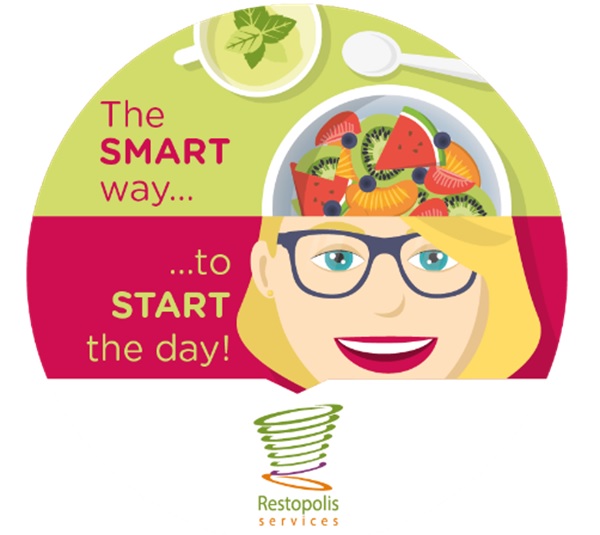
Breakfast is the first meal of the day to break a period of fasting; it is a meal in its own right that is supposed to cover 25% of daily nutritional needs. It is also an opportunity to consume some of the recommended nutrient intake that we will no longer be able to consume at other meals.
Breakfast is only beneficial if it is well composed and taken in good conditions; beware of "express" or "nomadic" breakfasts that have come to replace traditional breakfasts. Often composed of "breakfast" biscuits, small brioches, cereal bars, yogurts to take away cereals, liquid yogurts or stuffed rusks, the composition of these "express" or "nomadic" breakfasts is not ideal, and contain far fewer benefits than traditional breakfast. In addition to not being healthy, this type of breakfast is normally ingested quickly while doing another activity.
• Fresh fruit, for example: 1 apple or 1 orange or 2 clementines or 2 kiwis or 1 pear or 1 banana.
• A dairy product, for example: a glass of milk or plain yogurt or cottage cheese or a piece of cheese.
• A little fat For example: a little butter for toast.
• Optional: sweet and / or salty filling - one can round off one's breakfast with a sweet filling (honey, jam, fruit compote, spread) and / or sometimes with a salty filling (ham, turkey fillet, egg).
• A drink, for example water, lemon juice, infusion, tea or coffee. Water intake is fundamental in the morning. Rehydrating after the night is the minimum to do even if you do not eat.
The Restopolis campaign includes a comprehensive booklet containing detailed information of the choices available to enjoy a healthy and nutritious breakfast, coupled with the promotion of local and regional products.








